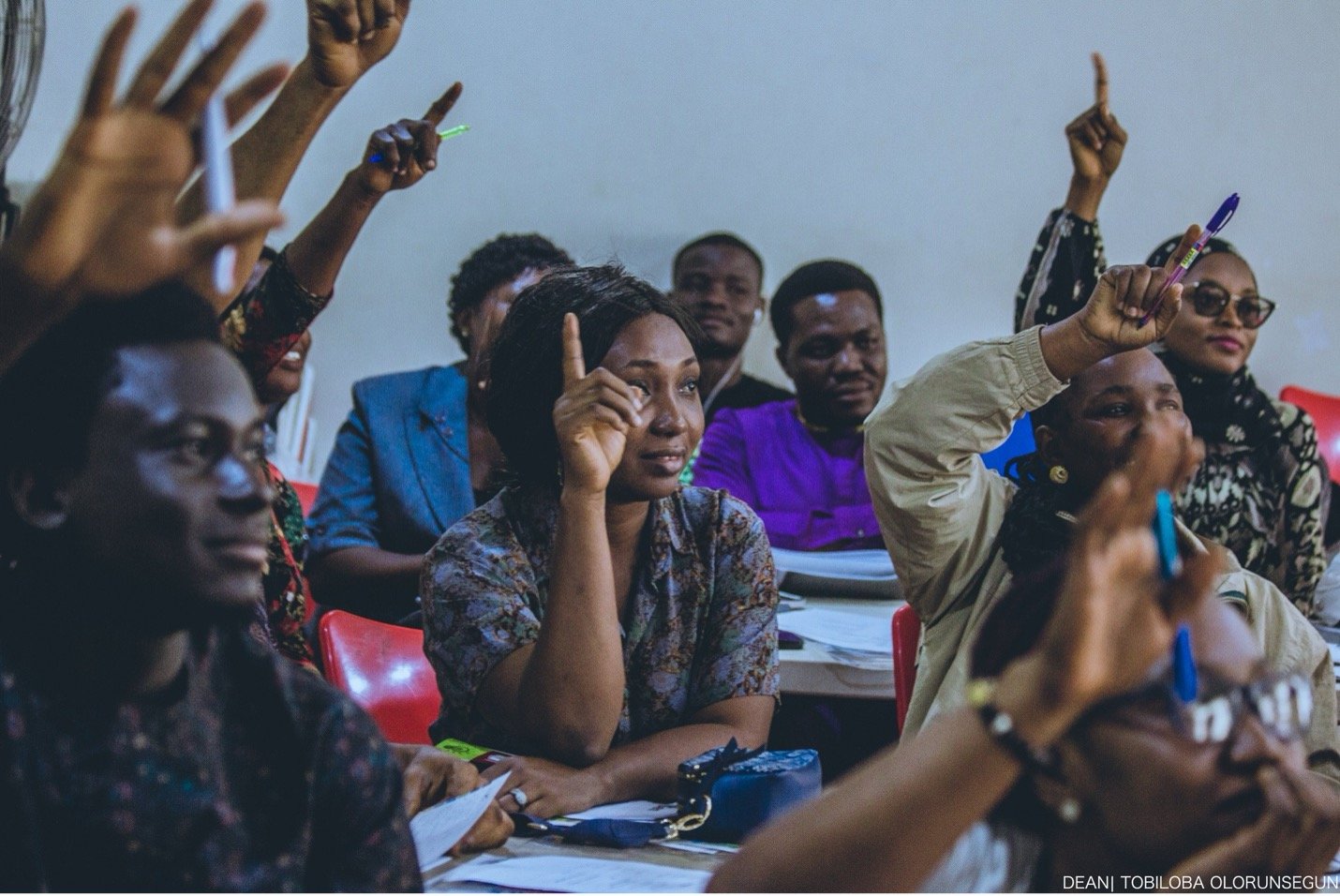This story is part of “Stories of Action,” a series highlighting the finalists from our first-ever global open call, which saw 175 organizations apply, leading to 24 finalists and four grant recipients. This initiative seeks to amplify impactful climate justice efforts and celebrate the ongoing work activists are doing around the world to advance climate justice.
Lake Chad from Above
Lake Chad, which straddles the borders of Niger, Chad, Nigeria, and Cameroon, was once one of the largest lakes in the world, but it has been rapidly shrinking for decades. In fact, since the 1960s, it has lost over 90% of its mass, a reality that has caused large-scale population displacement, resource scarcity, and social tensions.
As the lake and its once bright ecological zone shrink, so too do employment opportunities in the region. Residents in the communities surrounding the lake have historically made their living fishing and farming in concert with the lake’s ecology. As climate change drives rapid desertification and unpredictable rainfall, these traditional livelihoods have decreased, causing economic insecurity and rising rates of gender-based violence.
Teachers at the NextGen Teachers Boot Camp organizied by DEAN, learning to integrate sustainability into their classrooms across Lagos, Abuja, and Kwara. Photo courtesy of Tobiloba Olorunsegun
DEAN Initiative, a nongovernmental organization in Nigeria, hopes to highlight and counter this insecurity with its Lake Chad Climate Justice Fellowship, a transformative 24-month program to empower 20 young climate activists as storytellers in the Lake Chad region. Fellows will receive capacity building support so they can better understand the connections between climate change, insecurity, and gender-based violence. Fellows will then use their knowledge and voices to advocate for climate justice in their communities and in global stages as well. They will also receive seed funding to implement climate resilience projects where they live.
This sort of storytelling and advocacy work is familiar to DEAN Initiative. “We really want the people to tell their story by themselves,” says Ngozi Edum, Partnership and Innovation Manager at DEAN Initiative. Previous work has focused on launching national climate conversations and helping communities share their personal stories and experiences with the climate crisis. Local government actors are a key audience for the campaigns and narrative programs led by DEAN. The organization plays a vital role in connecting community members with local government actors who can be persuaded by residents’ stories to shift policy and budgets to respond to local needs.
Students at Holy Rosary College in Gwagwalada celebrating International Day of the Girl Child 2024, sharing their dreams, and pledging to work hard for their future
For the Fellowship, DEAN knows these stories and projects have a greater chance of success because they are driven by young people from the impacted communities. As members of communities bordering Lake Chad, fellows know firsthand the impacts of the lake’s changing ecology. They genuinely understand the cultural settings and norms that are contributing to the rise of insecurity and gender-based violence in their communities. DEAN believes these fellows can use their direct knowledge of the crisis and its impacts to build rapport with their communities and to implement projects that diversify livelihoods and promote more sustainable solutions, thus driving down insecurity and violence.
Learn more about DEAN Initiative’s work here!



